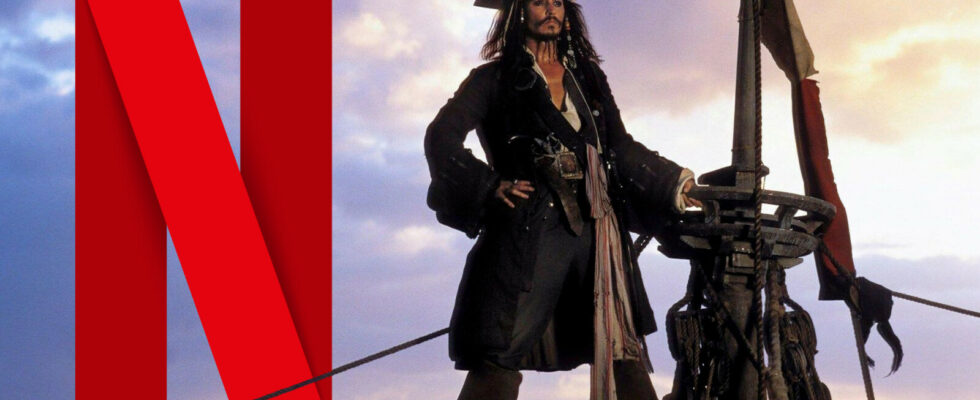Too many streaming services, prices that are too high, advertising – providers like Netflix are screwing over their subscribers. The result: Interest in illegal alternatives is increasing again.
The streaming privateers are turning their backs on Netflix – but not on Netflix’s own productions (Source: Themoviedb.org/Netflix/Collage: Netzwelt)
- Many streaming services are becoming increasingly unpopular due to price increases and advertising.
- As a result, cancellations are increasing and former subscribers are turning to illegal streaming portals.
- This trend scares Netflix because the streaming service doesn’t know whether it can combat free video piracy.
From the beginning, Netflix did not see itself as a victim of video piracy, but as an alternative. It was assumed that film and series fans would be willing to pay a small sum every month in order to have easy access to high-resolution streams.
This plan was initially a complete success, the number of illegal streams fell and Netflix became the most successful streaming service on the market. But times have changed and the war of streaming services is giving rise to numerous new providers, who also repeatedly increase their prices and sometimes place advertising in the middle of the program.
Video piracy is gradually returning and more and more providers are now fearing this business model, which is illegal but also free and therefore extremely tempting.
Pirates are becoming a problem Netflix also has pirates to offer (Source: Netflix)
A study conducted by Forbes in 2023 showed that only 20 percent of Americans wanted to forego a Netflix subscription; for Disney+ this figure was 46 percent and for HBO Max it was as high as 54 percent. This was good news for Netflix, as the potential for piracy was much higher on these competing platforms.
But illegal streaming is also a problem for Netflix, as the streaming service itself explains in its annual 10-K report:
About the different economic models […] include subscription, transactional, ad-supported and piracy-based models. All of these models have the potential to capture significant segments of the entertainment video market. Piracy also threatens to harm our business because its basic offering to consumers is so compelling and difficult to compete with: virtually all content is free.
Netflix on Form 10-K
It continues in a similarly pessimistic manner:
Given the compelling customer offering, piracy offerings are experiencing rapid global growth and our efforts to prevent this growth may be inadequate. If we are unable to compete successfully or profitably with current and new competitors, our business will be adversely affected and we may be unable to increase or maintain our market share, sales or profitability.
Netflix on Form 10-K
However, it remains unclear how Netflix will compete with piracy if prices continue to rise or advertising makes streaming increasingly less attractive. Steps that please investors usually annoy subscribers, so the only thing that can help here is a “back to basics” approach that relies less on advertising and expensive surcharges and more on satisfied, paying customers.
However, Netflix appears to be taking a different approach here, recently paying $5 billion for the rights to WWE wrestling. After all, live events are harder to stream illegally…
- ” Tip: The best VPN providers for more security and data protection
- » Buy balcony power plant: Comparison of the best solar systems
Don’t miss anything with this NETWORK WORLDNewsletter
Every Friday: The most informative and entertaining summary from the world of technology!
